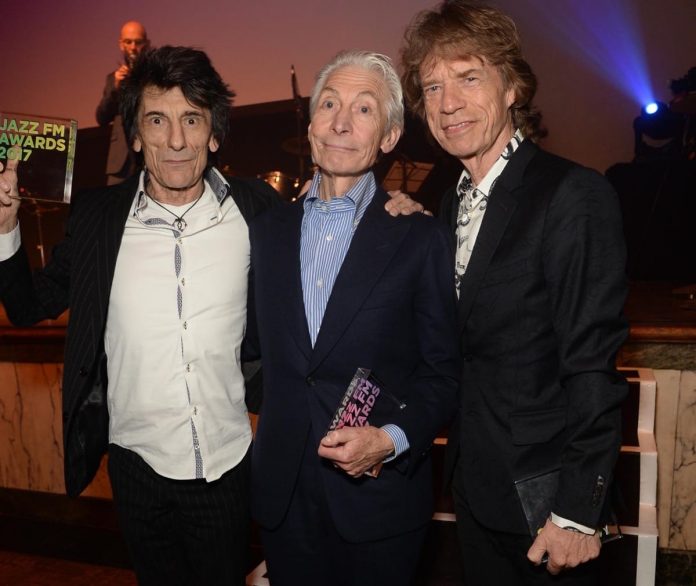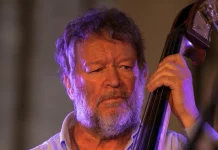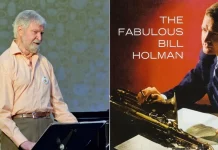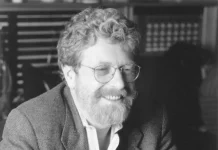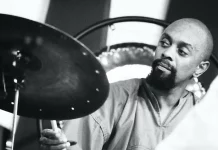The life of Charlie Watts is, like those of the other members of the Rolling Stones, well documented. But there was the side of his life that was directly linked with jazz, epitomised by the story that when he arrived in New York for the first Stones American tour, he headed straight to Birdland to see his jazz heroes like Charles Mingus and Sonny Rollins.
Born in London in 1941 and raised in Kingsbury, he first played banjo, after hearing Johnny Dodds records with banjoist Bud Scott on them. His uncle, a drummer with a record collection, would play him Ronnie Scott Esquires and Parlophone 78s by the Humphrey Lyttelton band with Wally Fawkes, and he was later to inherit the collection, which he played on a wind-up machine provided by his close friend, bassist Dave Green. As boys, they lived next door to each other and played music together – Dave on an old tea chest and Charlie using brushes on his banjo. He would play along with records by Dodds, Morton, Ellington and Armstrong’s Hot 5 and 7.
At 13, he got a drum kit from his parents and it was about then that he started listening to more modern jazz, after hearing Gerry Mulligan’s Walking Shoes with Chico Hamilton on drums, then gravitating towards Parker and Monk. During this time he performed with a local band called the Jo Jones Seven and soon started playing local clubs and pubs including The Mason’s Arms Edgware. He studied at Harrow Art School and for a while worked as a graphic designer, during which time he produced Ode To A High Flying Bird, an illustrated children’s book about Charlie Parker.
He joined Alexis Korner’s Blues Incorporated in 1961 and played regularly in Richmond with the band. He later recalled their first gig out of London, in Birmingham: “My share was half a crown. Jack Bruce, Dick Heckstall-Smith and Cyril Davies got a pound each because they were professionals. But pianist Johnny Parker and I got only half a dollar.”
During this period he played as support to Wally Fawkes’ band which had Ray Smith (of Collet’s Jazz Shop) on drums. Borrowing Ray’s kit, he unfortunately put a hole in one of the drumheads. He gave Ray a few pounds to get it mended, although this never happened. For many years it remained in the basement of Collet’s shop, then at Ray’s, complete with the homemade patch Ray used as a repair. The money, Ray said, was used to buy a drink or two.
That was the start of a long friendship, based on their common interest in drumming and cricket. Charlie and Ray would meet at Lord’s to watch a game, discussing cricketers and drummers that they particularly admired, such as Frank Butler, Max Roach and Elvin Jones, although Charlie’s favourite was Kenny Clarke.
Charlie’s generosity and loyalty to his friend was shown when his big band appeared for the opening night at Ronnie Scott’s in 1985 and a table in prime position was reserved for Ray and the staff of Ray’s Jazz Shop. In later years, when Ray was first taken seriously ill and admitted to Middlesex Hospital, a large bouquet arrived, with a signed get-well card; the nursing staff were amazed to see who the message was from. Charlie was also one of a small group of Ray’s close friends who scattered his ashes in Soho in 2011.
The big band was a project Charlie had wanted to do for some time. It started at Ronnie’s and went on to tour the US, including appearances at the Hollywood Bowl and in New York. It included a large assemblage of British musicians – picked by Charlie and fellow drummer John Stevens – including Bobby Wellins, Don Weller, Courtney Pine, Alan Skidmore, Willie Garnett, Colin Smith, Jimmy Deuchar, Paul Rutherford, Annie Whitehead, Harry Beckett, Evan Parker, Gail Thompson, Stan Tracey and many more. Drum duties were shared by Charlie and John, with Bill Eyden. An album, Live At Fulham Town Hall was recorded in February 1986 and released by Columbia.
Possibly Charlie got the taste for big band from his outings in the late 70s and early 80s with Rocket 88, the blues and boogie band led by the Stones’ early pianist, road manager and soundman Ian Stewart and which included Dick Morrissey, Hal Singer and Don Weller.
Other recordings followed, not only by the orchestra but smaller groups. A quintet with alto saxophonist Peter King, pianist Brian Lemon, trumpeter Gerard Presencer and bassist Dave Green recorded Bluebird (1991) and A Tribute To Charlie Parker With Strings (1992) which added vocalist Bernard Fowler, as did Warm And Tender (1993) and Long Ago & Far Away (1996). His 2001 recording, Watts At Scott’s was a tentet with, amongst others, Evan Parker and Henry Lowther.
There was also a live collaboration with the Danish Radio Big Band in 2010 and a couple of boogie-woogie albums with German pianist Axel Zwingenberger. His 2000 recording with American drummer Jim Keltner was a percussion project, each of the tracks taking its title from the names of drummers they idolised: Shelly Manne, Art Blakey, Roy Haynes, Kenny Clarke, Tony Williams, and so on.
Charlie only occasionally played on others’ albums, but notably on The Howlin’ Wolf London Sessions (Chess, 1971) and blues guitarist Brian Knight’s Blue Eyed Slide in 1991.
A modest man who liked privacy, understandably given the huge publicity that followed the Stones over six decades, he will be missed by many in the jazz world, and our thoughts and condolences go to his wife Shirley and the family.
Charlie Watts, 2 June 1941 – 24 August 2021

